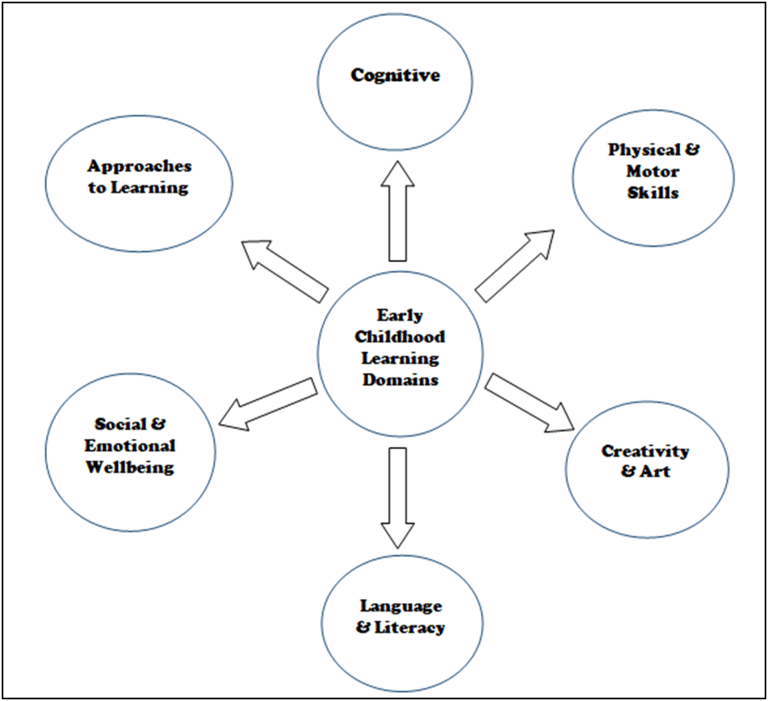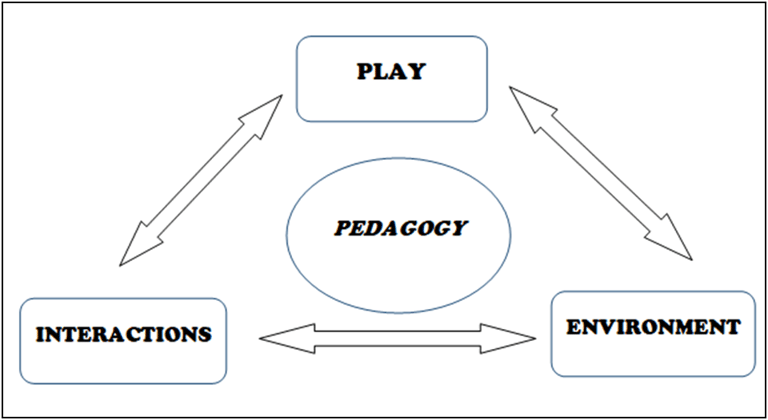Call : +91 88701 14503 | Email : vkmvidhyalaya.vari@gmail.com

Course Details
Pre-primary
"Preschool education is education imparted to children in 3-6 years of age group. It is the first stage of organized education."
(Pre-KG - Grade 2)
It envisions promoting access to universal, equitable, joyful learning opportunities for children between 3-6 years of age.
VISION OF PRE-PRIMARY:
It also intends to develop healthy attitude, good values and skills of critical thinking, collaboration, communication, creativity, literacy and socio-emotional development.
It ensures smooth transition from preschool to primary thus, enabling children for productive and satisfying life in future.
The overarching aims are
AIMS OF PRE-PRIMARY EDUCATION:
Holistic development of a child’s social, emotional, cognitive and physical well being.
To build a solid broad foundation for lifelong learning.




Primary
Primary School encourages the development of the whole student. Our aim is to support learners in becoming curious, reflective and critical in their thinking as global citizens.
(Grade 3 - Grade 5)
To provide an educational program that develops students’ curiosity and creativity.
OBJECTIVES:
To develop responsible and engaged learners.
To foster tolerance, respect and acceptance of others.
To build each student’s resilience and self-esteem.
To provide a curriculum that is rich and relevant and allows all students to succeed.
To promote a strong, supportive partnership between home and the school and the wider community.
To have high expectations of ourselves and others.
Children are expected to
CURRICULUM:
Acquire the skills of listening, speaking, reading, writing and thinking in an integrated manner.
Develop interpersonal communication skills.
Attain basic proficiency like, developing ability to express one’s thoughts orally and in writing in a meaningful way in English language.
Interpret and understand instructions and polite forms of expression and respond meaningfully both orally and in writing.
Develop reference skills both printed and electronic mode.
Acquire varied range of vocabulary; understand increased complexity of sentence structures both in reading and writing.
Express an awareness of social and environmental issues.
Middle school
Primary School encourages the development of the whole student. Our aim is to support learners in becoming curious, reflective and critical in their thinking as global citizens.
(Grade 6 - Grade 8)
To provide an educational program that develops students’ curiosity and creativity.
OBJECTIVES:
To develop responsible and engaged learners.
To foster tolerance, respect and acceptance of others.
To build each student’s resilience and self-esteem.
To provide a curriculum that is rich and relevant and allows all students to succeed.
To promote a strong, supportive partnership between home and the school and the wider community.
To have high expectations of ourselves and others.
Children are expected to
CURRICULUM:
Acquire the skills of listening, speaking, reading, writing and thinking in an integrated manner.
Develop interpersonal communication skills.
Attain basic proficiency like, developing ability to express one’s thoughts orally and in writing in a meaningful way in English language.
Interpret and understand instructions and polite forms of expression and respond meaningfully both orally and in writing.
Develop reference skills both printed and electronic mode.
Acquire varied range of vocabulary; understand increased complexity of sentence structures both in reading and writing.
Express an awareness of social and environmental issues.
Secondary school
(Grade 9 - Grade 10)
The learner—
OBJECTIVES:
Listens to announcements, instructions, read aloud texts, audio and videos for information, gist and details; responds by answering questions accordingly.
Listens to and discusses literary/nonliterary inputs in varied contexts to infer, interpret, and appreciate.
Communicates thoughts, ideas, views and opinions verbally and non-verbally.
Speaks fluently with proper pronunciation, intonation and pause, using appropriate grammar.
At this stage learners are expected to:
CURRICULUM:
Develop an understanding of what they hear in formal and informal settings.
Develop an ability to speak fluently and accurately in a variety of situations meaningfully.
Understand the verbal and non-verbal clues used by the speaker.
Respond to contemporary social concerns like violence against women, protection of environment, etc., think critically about various issues and concerns. y use language as a skill for real life purposes.
Attain a level of proficiency in English language to meet the workplace requirements.
Recognize and accept diversity in terms of language and culture.
Senior Secondary
(Grade 11 - Grade 12)
Group 1: Mathematics, Physics, Chemistry & Biology
Groups:
Group 2: Mathematics, Physics, Chemistry & Computer Science
Group 3: Physics, Chemistry , Biology & Computer Science
Group 4: Business Studies, Accountancy, Economics & Comp.Sci
Learners can have flexibility in assessment/ examination. This will lead to giving space to learners to follow their pace of learning without being labelled as slow, weak etc.
OBJECTIVES:
Educators can modify activities, tasks etc. as per the learning outcomes.
The processes highlight art integrated learning and inclusive approach for learning.
Equal opportunities are given to all students to develop the communication skills.
Conscious effort has been made to shift from memorization to the development of language competencies along with the competencies to function as an informed youth to work towards the societal upliftment and grow as a productive individual.
Value inculcation is integrated in pedagogical processes and in Los.
Different pedagogical processes are suggested for development of these competencies. These ensure integrated and seamless learning.
The learner -
CURRICULUM:
Listens to speeches, lectures, radio talks etc., reflects; to communicate through speech and writing.
Reads longer texts with implicit meaning and describes inferring from contexts, phonological cues etc. with clarity.
Writes, collects and appreciates narratives, short poems based on fantasy, imagination. shares and enjoys jokes, cartoons in English, foreign languages, Indian languages etc.
Speaks fluently and spontaneously. Uses interesting, and need based multilingual vocabulary
Uses and understands appropriate punctuation marks, grammatical items, modulation of voice in LSRW, proof reads and edits prose and poetry.

CONTACT US
Tindivanam - Pondy Highway, Omanthur Village, Villupuram District-604102
+91 8870114503 / 8870114504



